Richard Ali + Jakky Bankong-Obi. Listen to the interview here.
What is the process of writing a poem like for you? Is it a lot of hard work or easy?
Jakky Bankong-Obi: Some poems are easy. They come almost fully formed and need little to no edits and I believe every writer has poems like that. However, writing is mostly hard for me. I think it’s because I often have no idea what I’m going to write when I start writing. I get inspired by a thing or an experience or even get triggered by another line I’ve read and then I come to the page to interrogate that.
That place of ignorance can be difficult to navigate, difficult to find a way out of. But I do trust my muse. I’ve found out that if I’m willing to work, I can find my way out into the poem.
Also, I write a lot by hand. For most things, I start out with pen (pencil) on paper and that can be time-consuming, especially when you don’t even know what you want to say. Most times, I end up looking like some crazy doodler who just writes the same sentences over and over, trying to find the best form or lines that work. So, it does take a lot for me to write but I love the process of making poems. Poetry is my shtick and I don’t see myself doing anything else despite how hard I find the process of making poems.
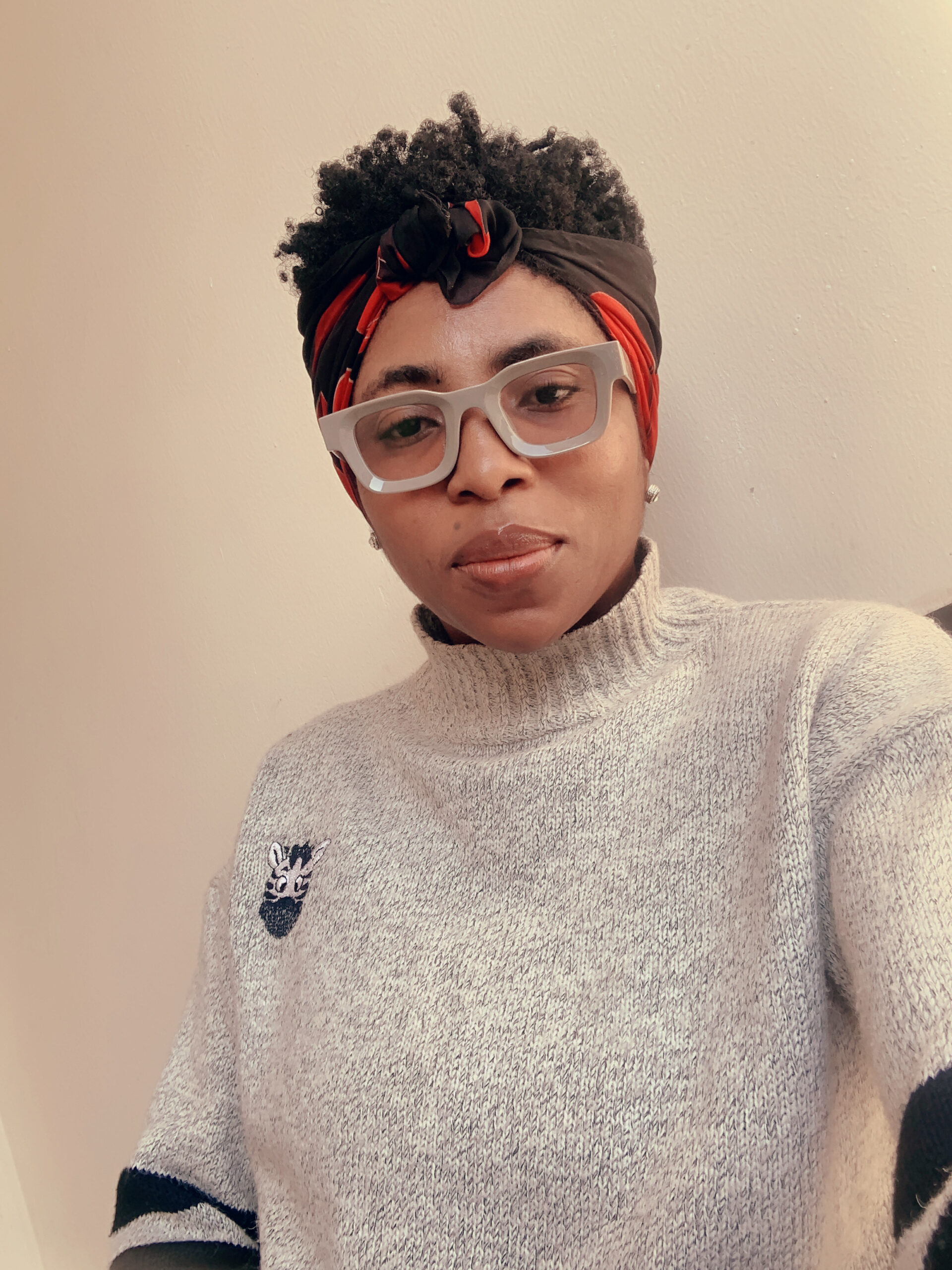
Jakky Bankong-Obi
Please describe your sense of identity in this or any possible world in imagery or metaphor?
Jakky Bankong-Obi: The imagery that will most closely fit into this would be a forest with a nice clearing beside a stream or river. I like forests because they are full of mystery and are mystical. I love that they are full of life and yet quite secretive. If you’ve ever lived near a forest, you get that sense of latency, something just coiled and waiting, a sense of fullness even when you don’t see anything but the trees. It’s like a hum, a pulsation underneath everything. To me, it speaks of possibilities and awe, which best translates life as something sacred. And the idea of a clearing and a stream is just basic and simple comforts in the midst of everything for me. The stillness and the quietness that, at the end of the day, make everything worthwhile. . . the quiet moments that allow you hear your own thoughts and feel your own breath. These are the things that symbolize what life means for me.
If any of your poems could literarily save a person’s life, which poem would it be and can you describe the person whose life you think it would have saved?
Jakky Bankong-Obi: I don’t think any of my poems can save anyone’s life literally but if someone needed to feel like they can survive anything then I’ll direct them to this poem “Little Catastrophe” from Pidgeonholes’ Lost Collection.
somehow / yet to unravel the persistent spine of mould.
it’s tapestry of food, medicine, poison / always with some suspicion.
in the taxonomy of growing things / decay can also mean logical conclusion
/ inchoate / substrate of compost, misting.
how to keep from slipping off the spill shots of a season’s coil?
proliferate / mushroom from what must go on
/ phyla fungi / little catastrophes of rot. refugia.
because even in the absence of light, there is still so much life can / gift
the dank its own reason
/ mulch /what did not take from before.
whatever flowers, name it survival / beauty
and ruin we could subsist on and thrive.
I also tend to look at the poem as encapsulating what my poems and my poetics are about which is the sacredness and power of ordinary, mundane things. In a world obsessed with big flashy things and where history is often reduced to things in the spotlight, I’m often reminded and want to remind everyone that it is the little bolts and knots in the engine that do the real work of holding it all together.
What does Africa mean to you, as potential or reality?
Jakky Bankong-Obi: Honestly, as a living reality, Africa, being African and living on the continent can be hard to navigate. What with all our infrastructural, cultural and systemic problems in terms of basic needs. But being African in the sense of ideological identity is something I’m proud of. I look at it in the sense of potentiality, especially as a poet and writer. We have such a rich historical archive, and I speak of this in terms of living experiences as well. We still have some of the richest human experiences in terms of social and cultural inferences. In my opinion, it’s solid ground for a hybridity of life in the reality of the world currently, the idea being that there’s so much possibility for growth both individually and as a cultural system.
Could you share with us one poem you’ve been most impressed or fascinated by? Tell us why and share favorite lines from it.
Jakky Bankong-Obi: “Language” by Camille Dungy is a poem that has held me in thrall for quite some time. Though sparse, its richness is in everything it considers which to me feels like the totality of life. As someone who is interested in an ecology of being that is holistic, I like its blurring of lines in terms of what language is, where silence and animal presences are taken into account as participants in the making and use of language.
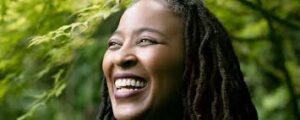
Camille T. Dungy
It’s a poem that often sets me straight in terms of looking at the bigger picture of existence. The ending of the poem, I think, brings the message home and reminds me why I love poetry so much. That landing is so exquisite, how it brings everything together beautifully in such a perfect depiction of what language does and its usefulness.
“Some notes tear and pebble our paths. Some notes
gather: the bank we map our lives around.”
Oh yes, poems may not be useful as something physical in the world but look at how much humanity has done and can do with language! We literally make sense as a species because we do language, because we communicate. All that we have built as a human society is made possible because of language. It’s pretty amazing when considered. Language as the bank we’ve mapped existence around. Profound really. I love this poem.
Jakky Bankong-Obi hails from Kakwe-Beebo, a village on the corridors of the Cross River Rainforest in southeastern Nigeria. Her chapbook What Still Yields was chosen by Kwame Dawes and Chris Abani for publication in the New Generation African Poets box sets, by Akashic Books and APBF (Spring/Summer 2022). Jakky is a Media Consultant and Co-Editor at Ice Floe Press, Poetry Editor at the Liberian magazine, Pepper Coast Literary and Co-curator at Poetry Sango Ota. Her work is forthcoming and in London Grip, The Kalahari Review, Reliquiae Journal (Corbel Stone Press), Pipewrench Magazine, Hobart Pulp, Gutter Magazine, The Poetry Review, Pidgeonholes and Memento: An Anthology of Contemporary Nigerian Poetry etc. Her work considers the intersection of nature, landscape, myth, and otherworldly geographies as prism for identity and being. Jakky is on twitter as @jakkybeefive.
- Poets Talk: 5 Questions with Kayeon Onyeka - February 25, 2025
- Poets Talk: 5 Questions with Jakky Bankong-Obi - December 3, 2024
- Poets Talk: 5 Questions with Odu Ode - November 26, 2024






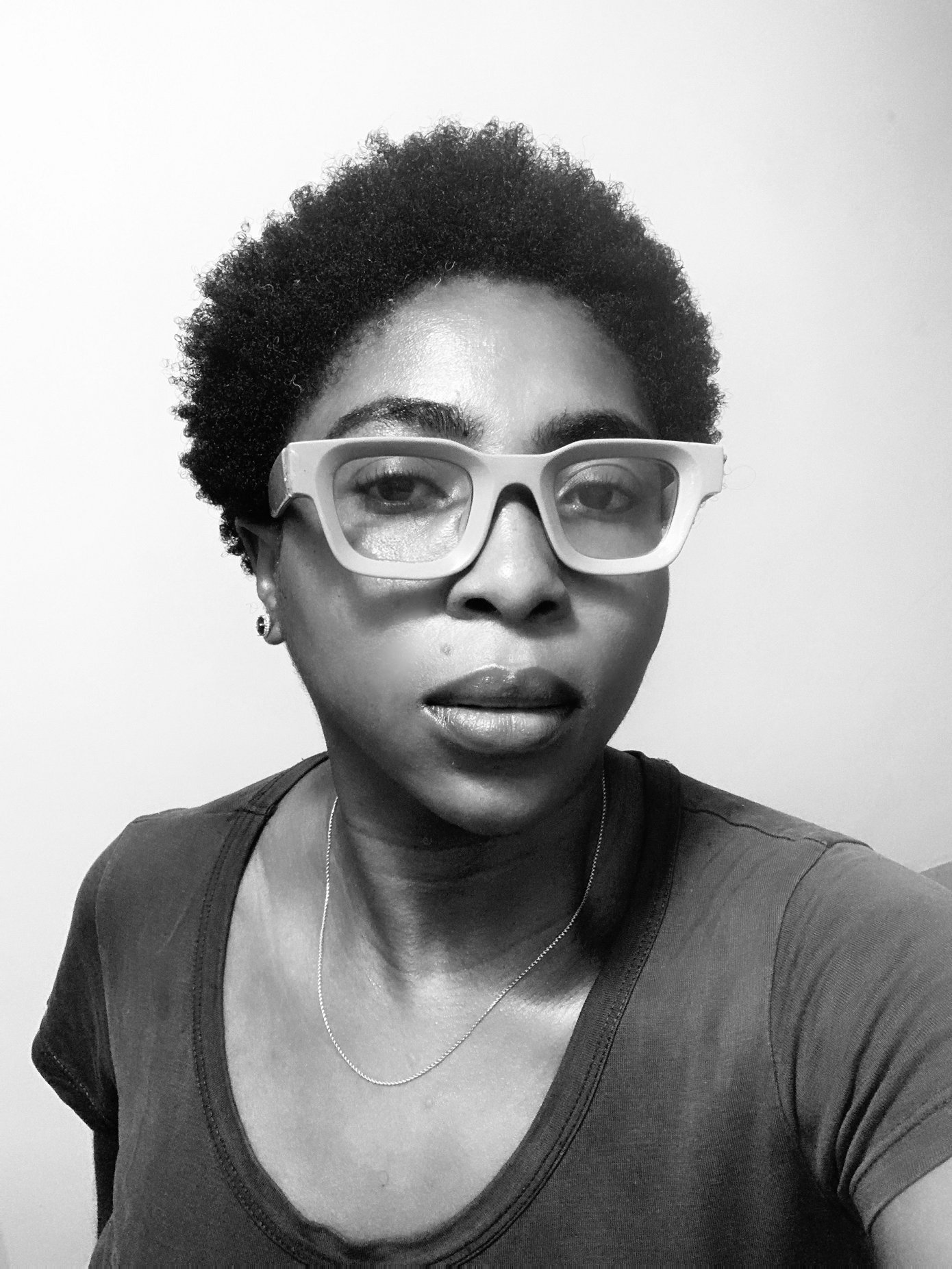
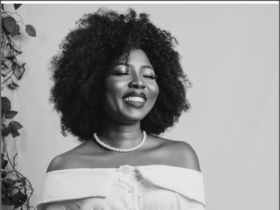
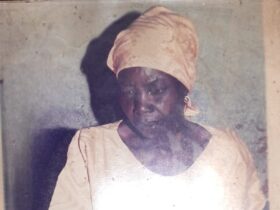
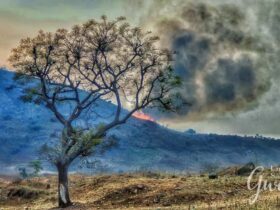
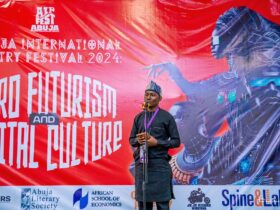
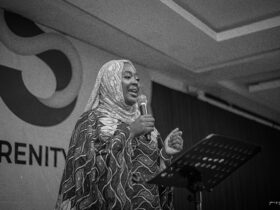

Leave a Reply